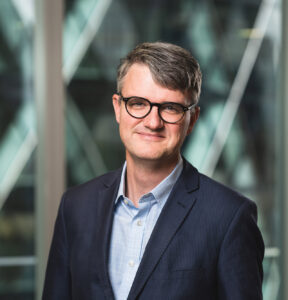Edinburgh: Sustainability meets the main stage
Unusually for a pensions conference, protesters greeted delegates at last week’s PLSA event in Edinburgh. Curious, I took a leaflet.
The leaflet called for pension funds and their asset managers to stop supporting coal, divest from companies expanding oil and gas production, vote against directors, and support human rights.
Entrance to the conference was tightly controlled. Security guards funneled me through metal barriers, checked and rechecked my pass, and searched my bag before ushering me down an escalator to the conference hall.
The hall itself featured the conference sponsors, most of which spoke about their sustainability credentials.
Sustainable investment has reached the main stage. So much so, that “ESG” has become a set of talking points for Republican hopefuls in the early stages of the US presidential election. ESG is a beast of our making and one that will only get noisier.
Net zero meets reality
The title of the panel I contributed to was Net Zero Meets Reality, and I was speaking alongside J O Hambro’s Andrew Parry and BP’s Giulia Chierchia. Implied in the panel’s title is net zero “by 2050”. Whether we warm the planet to 1.5, 2 or 3 degrees Celsius, we will get to net zero. The question is by when.
To limit warming to 1.5 degrees, as set out in the Paris Climate Agreement, we’ll need to get to net zero by 2050. And why 1.5? Because that’s the temperature rise the planet can safely absorb. We’ve already warmed the planet to in excess of 1.1 degrees and we’re already beginning to experience environmental tipping points, whether that’s the shrinking ice caps, melting permafrost or a shifting jet stream.
As we warm the planet further, weather events will increase – exponentially – in frequency and severity.
For pension funds, the short history of climate change reporting is something like the following:
In 2015, the Task Force for Climate-related Financial Disclosures was launched. A coming together of Michael Bloomberg, Mark Carney and other senior financial sector leaders, the Task Force sought to harmonise and standardise climate change disclosures in order to be comparable and decision-useful.
To begin with, data quality was poor and methodologies were inconsistent. That’s changing, in large part, as regulation has mandated TCFD reporting, for companies, asset managers and, as of last year, for the largest pension funds, and as this year, for pension funds with more than 1bn in assets.
Part of TCFD is setting targets, with many pension funds deciding to set net zero targets, committing portfolios to net zero greenhouse gas emissions by 2050, and often, 50% emissions reduction by 2030 – and monitoring progress towards those targets.
Establishing a decarbonisation framework
At Cardano, we’ve worked with clients to establish a decarbonisation framework. We think there are five steps pension fund trustees should consider:
- First, establish a decarbonisation framework. We think of this in terms of ‘tramlines’ to monitor progress towards net zero by 2050. Trustees could consider what actions they should take if the gap between their decarbonisation target and the wider economy widens.
- Second, Trustees could consider how to use investment tools to help reach their decarbonisation target. The tools may include investments in green bonds, sustainable equity investments, impact investments, and stewardship.
- Third, agree a stewardship policy. This could include a stewardship overlay or a deeper assessment of third-party managers on their engagement and voting. The Trustees could discuss what escalation looks like, if companies do not respond.
- Fourth, a natural extension of stewardship is public policy engagement, perhaps via a membership group, such as Pensions for Purpose, IIGCC or PRI, or, for DB corporate pension schemes, engaging their corporate parent.
- Finally, communicate the decarbonisation strategy to members. Public communication is a requirement of TCFD reporting, but Trustees could consider how to make best use of a range of communication tools available, particularly for DC pension schemes.
In the near term, we expect decarbonisation of easier to abate sectors, such as energy, private transport, improved energy efficiency of buildings, improved agricultural practice and ending illegal deforestation. In the longer term, it is the harder to decarbonise sectors, such as steel, cement, shipping and aviation.
Pension fund commitment to sustainability
Monitoring progress is part of a Trustee’s to do list.
There are two reasons why pension funds would commit to net zero by 2050.
- First, risk and return: Climate change is an unmanaged investment risk. The way in which our portfolio companies respond to climate change will is financially material.
- Second, real-world impact: Capital allocation and stewardship can help – or hinder – economy-wide decarbonisation.
While we think it’s important to understand responsible investment’s limitations, as climate change worsens, expectations from protesters – and savers and regulators – will increase. This won’t be the last pensions conference to be subject to climate change protesters.
Read more about our approach to sustainability here.



